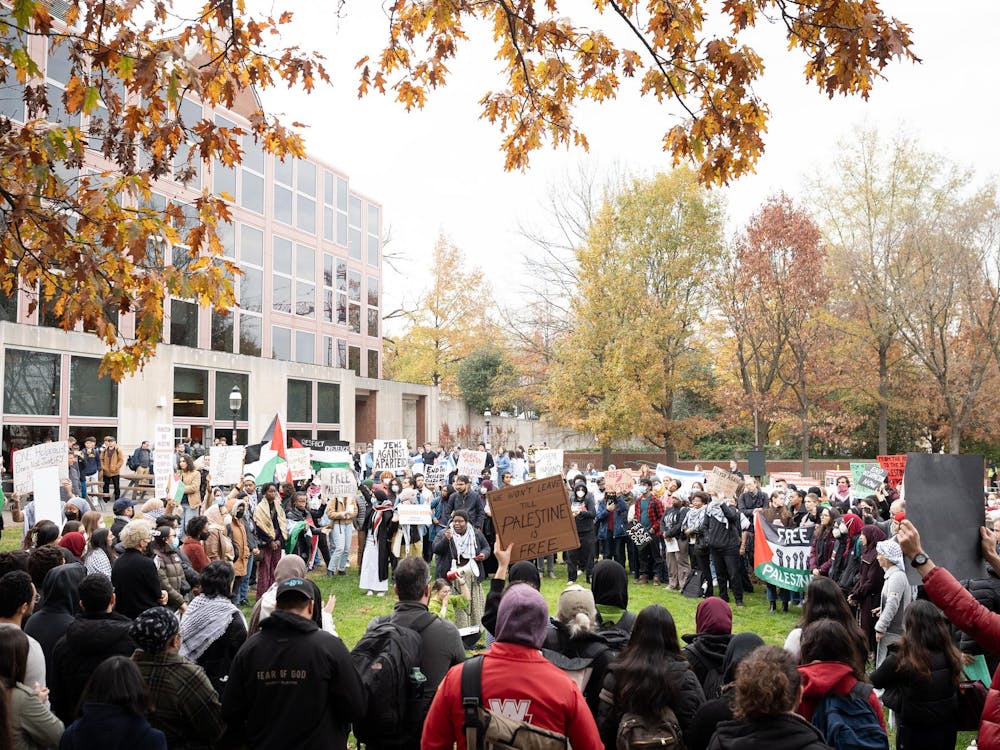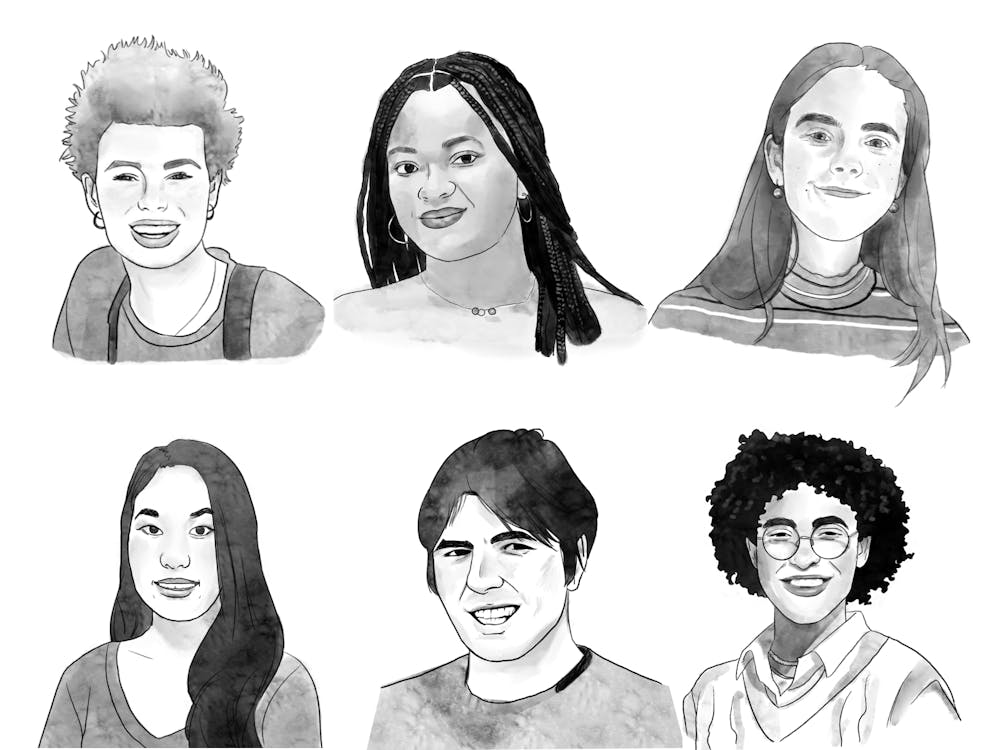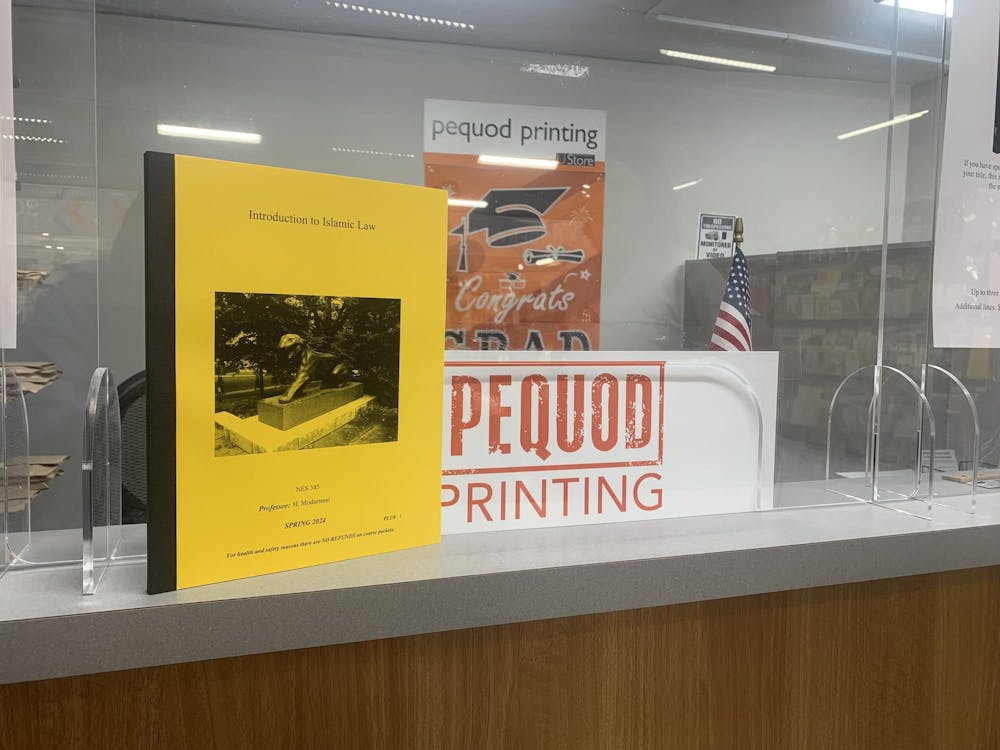Our employers ask us, “Before we hire you, we want to know — what are your views on women’s rights, given you’re in the Muslim Students Association?”
Our classmates ask us, “As a Muslim, how do you feel about ISIS?”
Our parents ask us, “You haven’t been associating with MSA a lot, have you?”
This is the “us vs. them” rhetoric that has defined our experience of coming of age as Muslim-Americans in the post 9/11 era. The conflict between our Muslim-ness and American-ness is not one that we have created but one that has been imposed upon us. We have to be “Muslim” before we get to be considered “American.”
This presupposed conflict between our Muslim-ness and American-ness has been exploited yet again. Presidential candidate Donald Trump recently called for “a total and complete shutdown of Muslims entering into the United States.” For Muslims already in America, Trump proposed an imposition of special identification cards. Trump’s ratings in the polls have risen since.
But it’s not just Trump who has created these divisions. Our own governor Chris Christie said he would not even accept a five-year-old Syrian refugee. The child’s presumed ‘dangerous’ Muslim identity precedes his or her need for help. These statements about refugees stem from a view that Muslim refugees will threaten American lives, and such rhetoric is a clear representation of the sway Islamophobia has over political officials. This suspicion toward Muslims is not just rhetoric to us. It translates into tangible actions that threaten our physical and emotional well-being. It impairs our ability to work, sleep and function, but we continue to function in order to claim our own narratives and identities.
This dichotomy of “Muslim-ness” and “American-ness” is far from the ideal, and no one is more conscious of that than we Muslims who have been raised and educated with American political values yet have witnessed something entirely different in the real world. The values of religious freedom and tolerance have the potential to make this country a safe haven for immigrants, and it is indeed the reason that many Muslims from other countries have come to the United States. While there has always been a gap between this ideal of tolerance and reality, it has been encouraging for all Americans to see noticeable progress in the cause of civil rights and diversity in the past century.
However, these trademark and, when they were penned, landmark ideals of religious freedom and tolerance have been shockingly and discouragingly undermined in recent months and years by the Islamophobic rhetoric of the very people whom we expect to defend these ideals: potential elected officials. This subversion and distortion of American political doctrine represent to all Americans a pernicious and inexcusable threat to the security of this nation’s people and morals. This has already played out in opportunity barriers, xenophobic immigration policies and numerous hate crimes.
Just in the last few months, a mosque in southern California was set on fire while people were inside, a store owner was beaten by a man who was on a mission to “kill Muslims”and there were many accounts of school girls harassed because they were wearing the headscarf. We shouldn’t have to warn our parents to stay safe, and it’s painful to not be able to suggest how.
Christie’s rejection of refugees hinges on the attempt to “put the safety and security of the American people first,” but what about us? This unbroken pattern of anti-Islamic sentiment and actions directly threatens us. We too are Americans, so what about our safety?
We are scared. As Muslim-American students at Princeton University, we call upon the University administration, faculty and students to recognize that we too are affected by the hate, violence and mistrust being perpetrated toward Muslims and other marginalized communities across the United States. We hope that our University community can model the kind of empathy and protection that Muslims in America need now, as our sense of security and belonging is under constant threat.
Signed,

Muslim Advocates for Social Justice and Individual Dignity
The following student groups stand in solidarity:
Religious Life Council
Muslim Students Association
Alliance of Jewish Progressives
Arab Society of Princeton
South Asian Students Association
Princeton Hindu Satsangam
Sikhs of Princeton
Latino Graduate Student Association
Princeton Asian American Students Association Executive Board
Students for Prison Education and Reform: Princeton
Princeton College Democrats
Queer Graduate Caucus
The Princeton Progressive
Princeton DREAM Team
Princeton for Bernie Sanders
Princeton Committee on Palestine
Center for Jewish Life Social Justice Committee
Christians for the Common Good
A Collective of Latinx Students
Black Graduate Caucus








